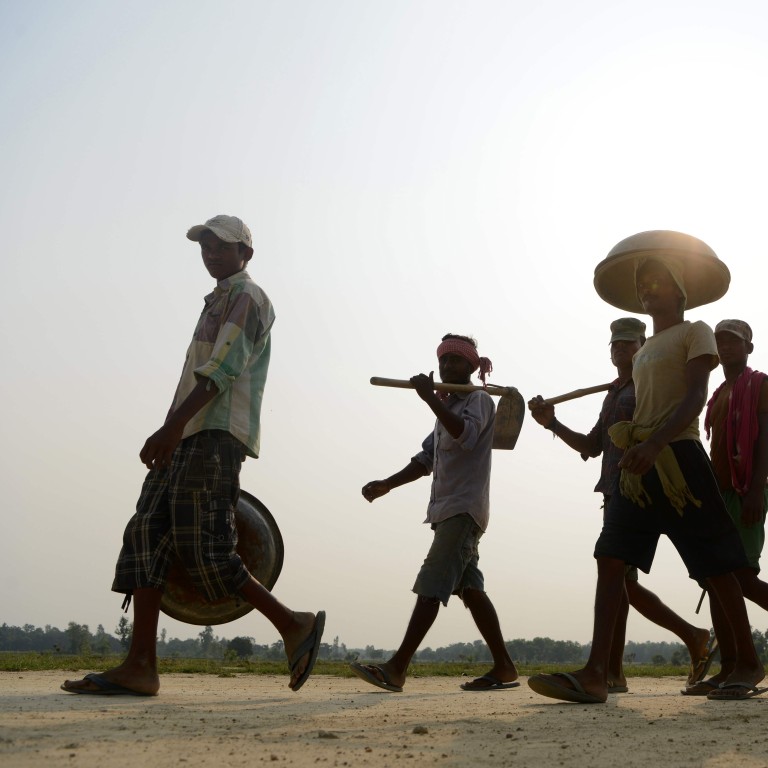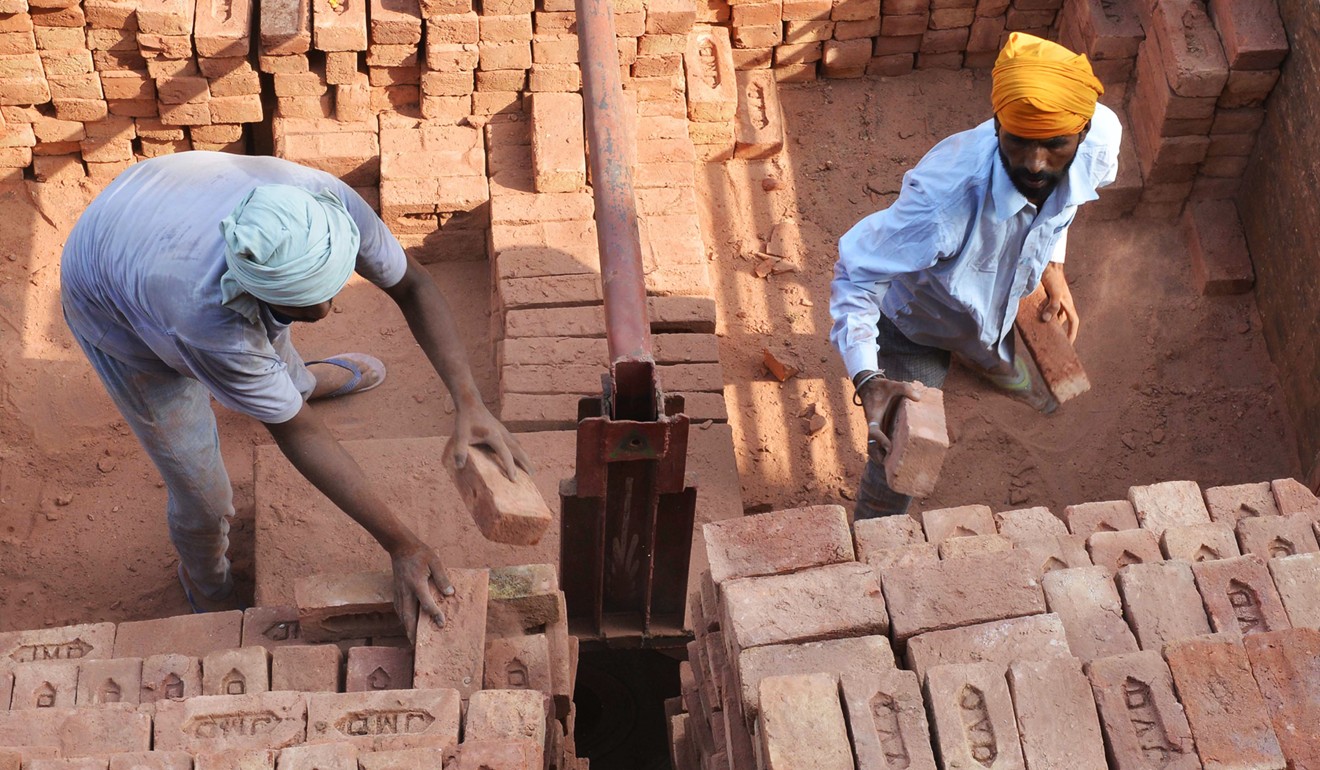
‘From captivity to leaders’: Three former slaves in India win village council elections
- Millions of bonded labourers work in Indian fields, brick kilns, rice mills, brothels and as domestic workers to pay loans that can stretch across generations
- In 2016, India announced an ambitious goal to rescue more than 18 million bonded labourers by 2030
Three former bonded labourers were elected to village councils on Wednesday in what experts have called a game-changer for millions in India who are trafficked to work and pay off debts.
One of the trailblazing winners was Kudumula Devamma, 40, who spent two decades fishing to repay loans taken by her father-in-law and husband in southern Telangana state.
“It is something I never ever dreamt of,” she said.
“My first priority is to improve the condition of my community and help them stay free,” said Devamma, one the first female former bonded labourers to be elected to a panchayat, or village council.
Inside the ‘rat hole’ mines where Indian workers risk their lives to find coal
Millions of bonded labourers work in India in fields, brick kilns, rice mills, brothels and as domestic workers to pay off loans. Most are illiterate, keep no records, are paid a pittance and do not know how long it will take to pay off their debt.
Two others survivors of debt bondage, the most prevalent form of slavery in India despite being banned in 1976, were also elected to councils in the area.

India announced an ambitious goal in 2016 to rescue more than 18 million bonded labourers by 2030.
But freedom is rarely enough to enable former slaves to move on. Most rescued workers battle “captivity mentality” as they are too scared to admit to suffering, such as sexual abuse, for fear of retribution from their former owners, counsellors say.
“What these men and women have achieved is quite remarkable and will change the rules of the game here,” said CH Vasudeva Rao, project coordinator with the charity Foundation for Sustainable Development, which rescues bonded labourers.
This tiny state in India wants to pay its citizens a universal basic income
“Their journey from captivity to being leaders is inspirational … Today’s victory is a great opportunity to speed up the rehabilitation for others in the area.”
Campaigners hope Wednesday’s poll victory will raise awareness about modern-day slavery and ensure other rescued workers access government schemes offering compensation, housing and employment via village councils.
When Renu Devi – rescued from agricultural bondage in 2014 – narrowly beat her “owner’s” candidate in panchayat elections in eastern Bihar state in 2017, her first move was to build a road connecting her village to the rest of the region.
“It takes months of ‘freedom training’ before a rescued workers finds the confidence to even speak up,” said Zahid Hussain, programme coordinator with Justice Ventures International, a local anti–trafficking charity.
“When I first met Renu Devi, she was scared and didn’t speak at all. Today she is too bold.”

